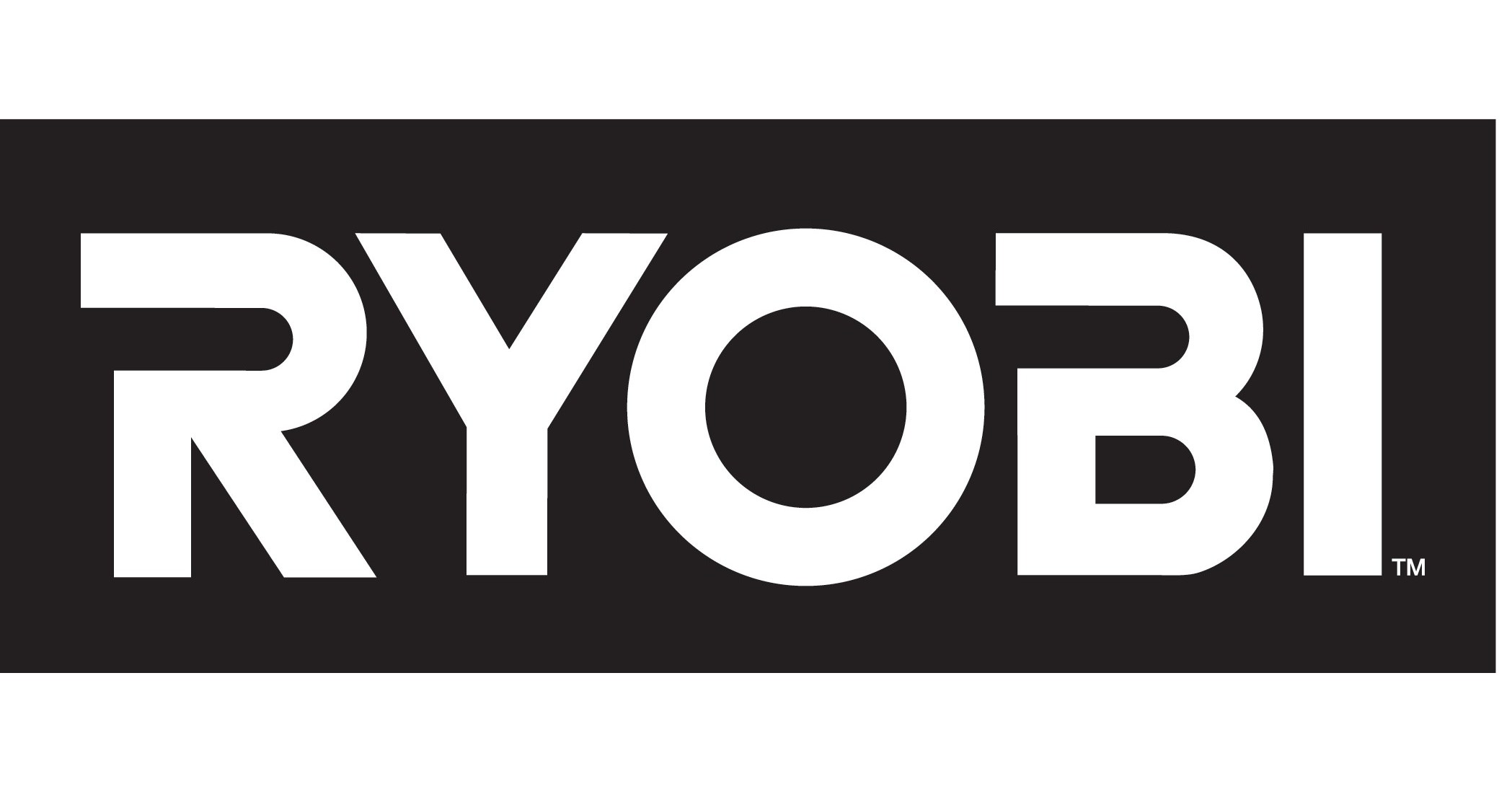Why Choose Ryobi?
Ryobi is best known today for its diverse line of dependable power tools, but the company has also manufactured products ranging from automobile and telecommunications components to golf clubs and offset printing presses. Ryobi has thrived in so many market sectors because of its drive and commitment to innovation, and that pioneering spirit has fueled its growth for more than seven decades. Exceeding expectations has always been the company’s goal, which becomes clear as soon as you pick up a Ryobi chainsaw. Ryobi power tools are renowned for their useful features and never-say-die power, which is why they are often chosen by professionals who can’t afford to take any chances.
History
Ryobi set up its first makeshift factory in an empty warehouse that was once used to store soy sauce, and it now operates state-of-the-art manufacturing and research facilities in six countries. That kind of growth does not happen by accident. To understand why Ryobi power tools are so good, we have to take a look at the company’s incredible journey, the adversity it has overcome and the opportunities it has seized.
Founding and Milestones
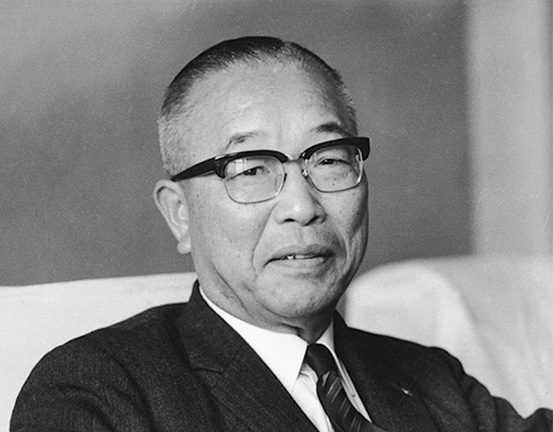
Ryobi’s story began with a question. When a Mitsubishi executive asked Yutaka Urakami to start producing die cast products for the Japanese government, the Ryobi founder asked “what’s die casting?” Urakami understood that he was being presented with an incredible opportunity, and he was not going to let his lack of knowledge and experience stand in his way. This belief in himself and desire to succeed set Urakami apart, and it gave him the courage to question the way things were done even in industries that he knew very little about.
Urakami named his company Ryobi Seisakusho, and it was soon producing die cast components of the highest quality. The reason for this quality was simple. Urakami noticed that the companies he used for post-processing were not as fastidious as he was, so he decided to do the work himself. This established a trend for vertical integration that remains a core Ryobi strength to this day. It was not long before Ryobi Seisakusho was producing die cast components for Japan’s burgeoning automobile industry, which raised Urakami’s profile considerably.
Ryobi Seisakusho transitioned from making parts to producing finished goods when the optics and electronics giant Minolta approached Urakami and asked him to start making copiers and cameras. The company quickly earned a reputation for quality and attention to detail, and it was soon manufacturing door closers, offset printing presses, fishing equipment and even golf clubs as well as Minolta products. Ryobi Seisakusho took a major step toward becoming the company we know today when it added a line of power tools to its product lineup in 1968.
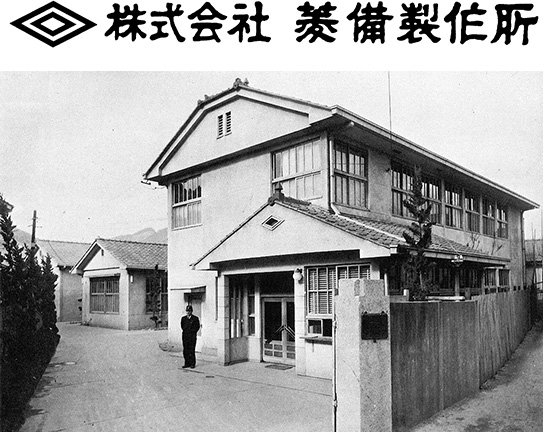
The company changed its name to Ryobi Limited in 1973, and it took another major step in 1985 when it became the first Japanese die casting company to open a manufacturing facility in the United States. Ryobi’s Shelbyville, Indiana, plant is still operating, and it produces parts for both American and Japanese auto manufacturers.
Ryobi has always been concerned about the toll heavy manufacturing is taking on the planet, and it was one of the first global companies to take action to reduce the size of its carbon footprint. The Ryobi Environmental Preservation Committee was established in 1990, and it has become a model that many other multinational corporations have used to develop their own sustainability programs. The company also gives back to the communities it serves. The Ryobi Social Contribution Foundation, which was founded in 2004, runs an aluminum recycling program that salvages valuable resources and generates money for charity. The company also encourages its employees to participate in blood drives and pick up trash in public parks.
Ryobi’s power tools went mainstream when the company entered into a licensing agreement with Techtronic Industries, which is also known as TTI. TTI is a leader in power tool technology and pioneered the use of lithium-ion batteries, and its portfolio of brands includes Milwaukee Tool, Hoover, Oreck, AEG and Dirt Devil as well as Ryobi.
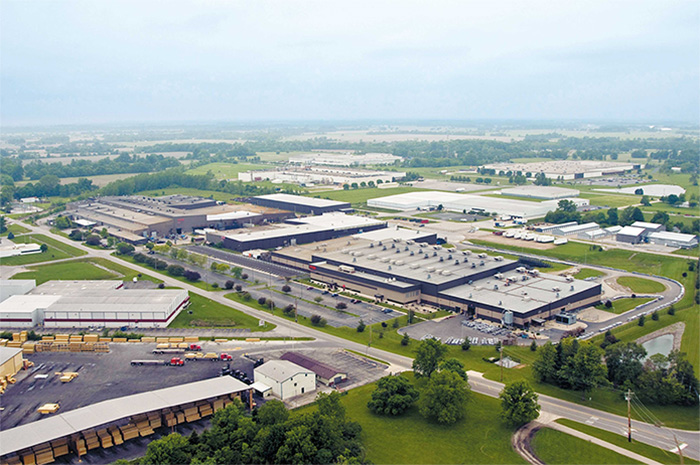
Production and Manufacturing
Ryobi has become a byword for reliability and performance, which is not surprising considering the company’s history. In this section, we will take a look at Ryobi’s latest line of chainsaws, the features that make them great and the factories that ensure that they will never let you down.
Products
Ryobi’s current product range includes chainsaws with bars as small as 8” and as large as 18” and pole saws with 8” or 10” bars. The entry-level model is powered by a 13-amp motor and features a 16” bar, but this electric Ryobi chainsaw delivers performance that belies its modest price. It’s packed with features, requires no gas or oil and is kind to the environment. The Ryobi chainsaw line also includes:
- The 18V ONE+ series: These saws have powerful brushless motors that cut up to three times faster, and some of them are part of the WHISPER SERIES. This means you will be able to use them on a Sunday morning without upsetting your neighbors.
- The 40V series: If you are looking for a cordless chainsaw that performs as well as a tool powered by gas, look no further than the Ryobi 40V series. These saws up the ante with 15% more power, longer runtimes and just about every feature Ryobi can pack into a cordless chainsaw.
- The 2 Cycle Series: If you prefer gas chainsaws, the Ryobi 2 Cycle series has you covered. These saws are powered by 37cc engines and feature compact, lightweight designs.
Ryobi chainsaws are used by professionals because they offer an impressive number of convenience and safety features. Features you can find on many Ryobi chainsaws that other manufacturers either do not offer or offer on only their most expensive models include:
- Brushless motors: Many power tools cut costs by using brushed motors, but Ryobi’s 40V and 18V ONE+ chainsaws feature brushless motors that have fewer moving parts, produce less heat and deliver more power. This is why Ryobi chainsaw cordless models run longer and do not fade even when their power packs are almost drained.
- Molded cases: Ryobi’s molded cases protect chainsaws during transport and prevent oil spills. They are built as tough as the saws they protect and feature scabbards that keep the bar and chain out of harm’s way. Ryobi cases are also large enough to hold a saw, some spare chains, a battery, a charger and a bottle of oil.
- Automatic oiling: You won’t have to stop work to oil a Ryobi chainsaw because these tools take care of this chore automatically. Just top off the reservoir before you start, and Ryobi’s automatic oiler will make sure the bar stays lubricated. You can even dial the automatic oiler down when the job is done to prevent leaking.
- Powerful batteries: TTI was the first manufacturer to produce power tools with lithium-ion batteries, and Ryobi’s latest power packs show just how far this technology has come. Many professionals who once swore that they would never abandon gas now use tools powered by Ryobi chainsaw electric motors.
- Ambidextrous handles and guards: Holding a right-handed chainsaw with the left hand can be very dangerous. Ryobi keeps things safe with ambidextrous handles and guards that can be removed and reinstalled in the field.
- Ergonomic designs: Some cordless chainsaws are cumbersome to use because their batteries stick out. Ryobi has recently redesigned its entire range to be more ergonomic with batteries that sit close to the frame. This improves balance and creates a more compact tool that can fit into tighter spaces.
- Faster charging: Ryobi chargers are as advanced as the company’s tools. A standard charger can take several hours to power up a 40V 5.0 Ah Battery, but Ryobi’s 4X faster charging gets the job done in just 60 minutes.
- Variable speed throttle: Starting up a chainsaw can be a laborious process, but Ryobi saws spring into life instantly thanks to their variable speed throttles. These throttles also provide the last word in control, which you will appreciate when you have to make difficult cuts and the right speed is crucial.
- Mechanical chain brake: Ryobi takes the danger out of difficult sawing jobs with a mechanical chain brake that shuts off power automatically at the first sign of kickback.
- Toolless chain tensioning: Keeping a saw’s chain properly tensioned is an elaborate process with some power tools. Ryobi makes fumbling for chain tools a thing of the past with chains that can be tensioned by hand in seconds.
- Anti-vibration handles: Sawing through thick logs is hard on the human body. Ryobi makes even the toughest jobs a bit less punishing with handles that have been engineered to reduce vibration and improve comfort.
If you would like to learn more about Ryobi chainsaws or want to know what features a particular model has, you will be able to find what you are looking for on our main chainsaw page.
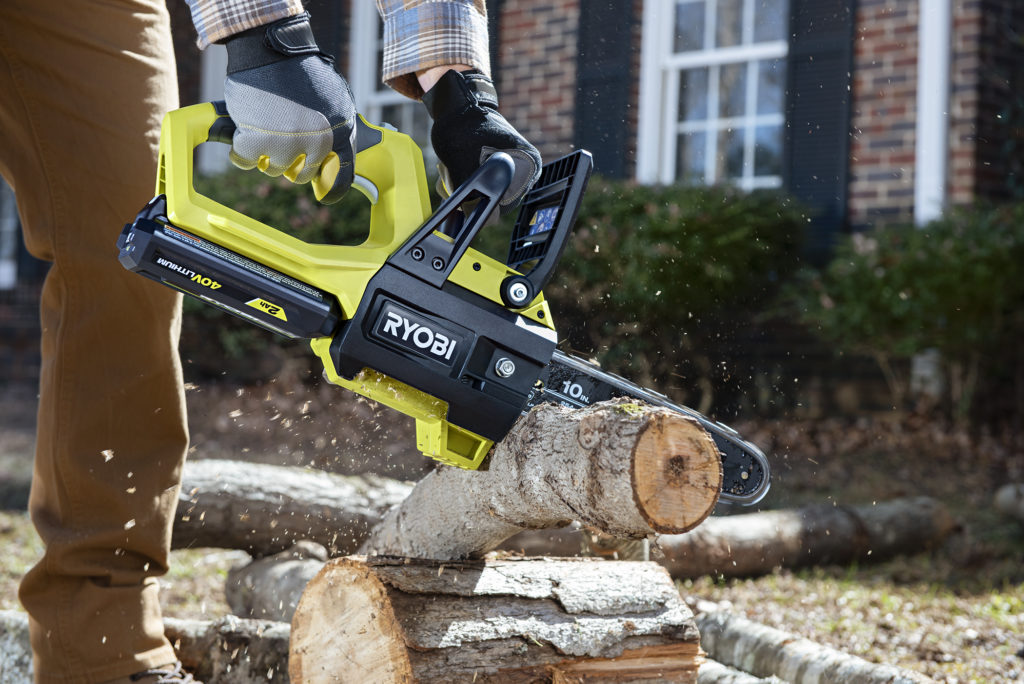
Manufacturing
Ryobi made a very smart move when it entered into a licensing agreement with TTI. The company had worked for years to build a brand that is associated with quality and reliability, and harnessing the technical expertise and innovative manufacturing techniques of TTI ensured that Ryobi’s reputation would remain in good hands.
TTI is the global leader in power tool manufacturing and was one of the first companies to release products that featured lithium-ion batteries. The company operates research and development and production facilities in the United States, the United Kingdom, Germany, Mexico, China and Vietnam that are packed with state-of-the-art equipment and technology. One of TTI’s most recent innovations is a mobile application that allows users to connect to their tools and program them remotely.
TTI has been named one of the world’s best companies by Forbes, and it received one of manufacturing’s most prestigious product design awards in both 2008 and 2012. TTI’s sustainability program led to The Home Depot recognizing the company as its Environmental Partner of the Year, and Euromoney has named TTI the best-managed consumer product company in Asia.
Many Ryobi power tools are now assembled in America. In 2015, TTI announced that it was building a brand-new manufacturing and distribution center in Anderson County, South Carolina, to meet the growing demand for power tools in the United States. The facility is now complete and open for business. It covers 1.3 million square feet and created 200 local jobs.
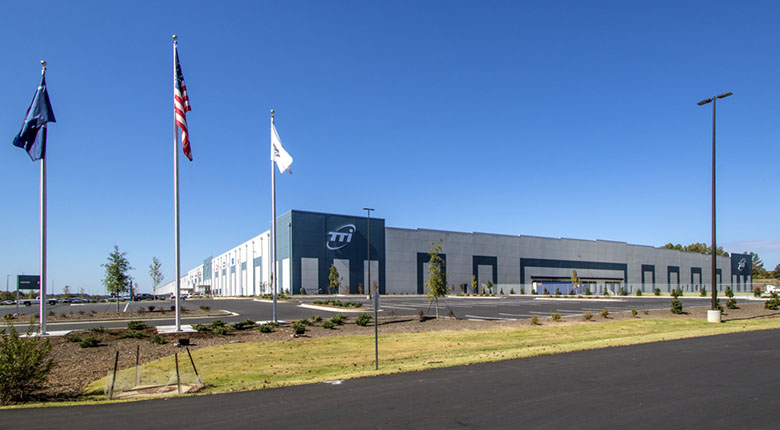
Key Facts
Ryobi has long been at the forefront of the effort to make manufacturing more sustainable and environmentally friendly. The company established an environmental preservation committee in 1990 that is tasked with reducing carbon emissions and increasing recycling. Taking a proactive approach to these issues has paid off handsomely for both Ryobi and the planet. The company now meets or exceeds the environmental laws in all of the six countries where it operates manufacturing facilities, and it has been recognized internationally for its recycling efforts. These recycling efforts include an aluminum can collection program that has kept several tons of the valuable metal from landfills.
The company has an all-hands-on-deck environmental policy. Senior executives are expected to improve sustainability at every stage of the production process, and factory workers are encouraged to suggest ways of improving efficiency and reducing waste. Ryobi employees also volunteer their time to pick up trash in public parks and clean up local rivers and streams.
Warranty Information
Ryobi chainsaws are built to last, so it goes without saying that they are backed by some of the best warranties in the business. Ryobi 2 Cycle and 18V ONE+ chainsaws are guaranteed to be free of defects in material or manufacturing for three years, and the company’s 40V chainsaws have tools that are protected for five years and batteries that are covered for three years.
In the unlikely event that a Ryobi chainsaw is defective, the company will repair or replace it at no cost to the consumer. However, owners are expected to cover the costs of shipping their tools to and from a Ryobi repair facility. Standard wear items like chains are not covered by the Ryobi warranty. If a fault develops during the first three months of ownership, Ryobi tools can be exchanged at the dealer they were purchased from under the company’s 90-day return policy. If problems develop after 90 days, tool owners can call (800) 525-2579 to obtain the address of their closest Ryobi repair center.
The Ryobi warranty is not transferable, which means it only protects people who buy tools new from an authorized dealer. Ryobi will make things right whenever a tool is defective, but it will not pay for repairs when tools are damaged because they were misused or abused. Ryobi customers do not have to register their tools to be protected by the warranty, but registration does offer several benefits. Registration provides access to Ryobi’s HELP+ resource that offers tips, troubleshooting guides and access to manuals, and it also expedites warranty claims and ensures important notifications are received in a timely manner.
Ryobi Chainsaw Parts
If you purchase a Ryobi chainsaw and need to buy parts for it after its warranty has expired or to make repairs for issues not covered by the warranty, the company’s https://ryobipower.ordertree.com/ dedicated parts website is where you will be able to order them. Finding even the smallest part is easy as all you have to do is:
- Enter the model number of your tool in the search box.
- Scroll down the list of parts until you find what you need.
- Click on the green part number.
If you do not know the name of the part you need, you can click on buttons that open up general assembly or wiring diagrams that have every component clearly numbered. Beneath the diagrams, you will find a list of parts in numerical order.
Check Out More Ryobi Content From Chainsaw Selector
You don’t want to spend your hard-earned money on a chainsaw only to have it let you down when you need it most, and neither do we. This usually happens when people buy tools that do not meet their needs, but the information you will find at Chainsaw Selector can help you to avoid this pitfall. Here are some of the ways we can help you to make smart decisions when you choose Ryobi tools.
Ryobi Product Reviews
Ryobi makes a lot of chainsaws, and many of them look very similar at first glance. Our reviews clear up the confusion and point you in the right direction with detailed specifications, pros and cons lists and comparisons to similar models from other manufacturers. Our reviews also tell you what consumers are saying about the Ryobi chainsaw you are interested in.
Ryobi Product Roundups
If you want to know how a Ryobi chainsaw 40-volt model compares to a tool with a gas engine or 18-volt motor, our product roundups will clear things up. You won’t have to worry about clicking between open browser tabs or taking notes because our roundups present all of the important information in a format that tells you what you want to know at a glance.
Ryobi Press Releases
Ryobi issues press releases when it introduces, improves or discontinues products, and they also inform the media when an important milestone is reached or an incentive program is announced. Finding all of this information on a search engine could take hours, but our press release pages gather everything together in one place. This is where you should go to make sure that the Ryobi chainsaw you are looking at is the best version, and it is also the place where you will find out about the latest rebate programs and special offers.
Ryobi Recalls
If a Ryobi chainsaw that you use is ever recalled, you will want to know about it right away. Registering your tool with Ryobi will make sure you get notified, and so will visiting our recall page. We will let you know why Ryobi announced a recall, what the company has agreed to do to rectify the problem and tell you what model numbers are covered.
Where To Buy
If you have read our reviews and roundups and know exactly which Ryobi chainsaw you want, the following brand pages on major retail websites are where you should go to find it. We only recommend retailers that have a good selection of power tools in stock, offer reasonable prices and take care of their customers.
Deals
Similar Brands
Bulleted list of similar or competing brands within the product category that our site covers. Check for internal links to those brand pages. [Delete this paragraph block]
Online Presence
Ryobi knows that power tool buyers do most of their research on the internet, so the company has a significant online presence. You can learn more about Ryobi’s chainsaws and other power tools by clicking on the following links:
Contact Information
Ryobi makes it easy for customers to get answers to questions with live chat, email, phone and text options. The company also has a resource that provides troubleshooting tips and answers to common questions. Ryobi representatives are available to answer questions Monday through Friday between 9:00 a.m. and 6:00 p.m. Here are the contact options Ryobi offers:
- Customer Service Number: (800) 252-2579
- Live Chat
- Customer Service Email: You can send Ryobi an email by visiting the company’s message page
- Support Page: You can find answers to frequently asked questions on Ryobi’s HELP+ page
